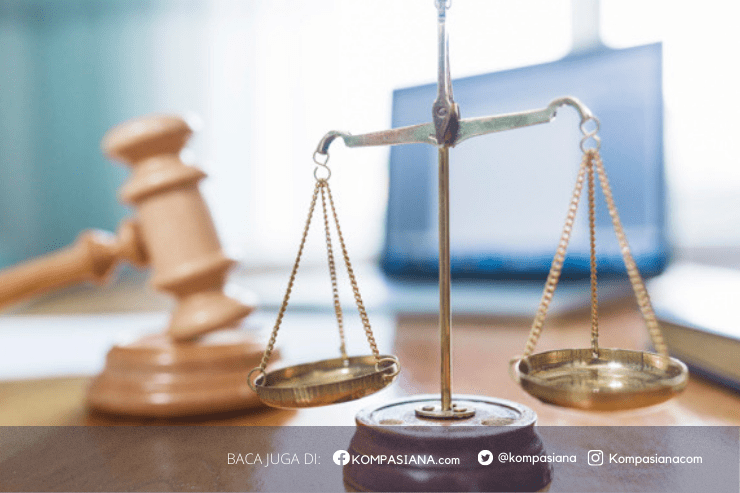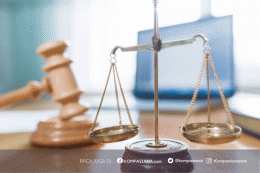Hai, Saya Luka Matic, Mahasiswa D4 Perhotelan 2020 Sekolah Tinggi Pariwisata Trisakti. Saya merupakan Penerima Beasiswa Prestasi 100% Sekolah Tinggi Pariwisata Trisakti. Saya harap dapat membagikan sesuatu yang bermanfaat. Terima kasih.
Citizens' rights and freedoms are one of the first associations with the constitution. Constitutional-legal regulation and regulation of the status of citizens is not foreign to totalitarian forms of government, despite the incompatibility of the concept of "rights and freedoms of citizens" on the one hand and the concept of "totalitarian form of government" on the other.
Such a constitutional-legal order has its theoretical justification and practical expediency within totalitarian regimes, and totalitarian regimes have multiple interests in such an arrangement. In this sense, the constitution of a totalitarian state can serve as a "legitimate" and most generally available legal remedy and instrument for restricting and abolishing the freedoms and rights of citizens - despite the constitutional proclamation of "democratic" rights and freedoms.
One of the basic purposes of the constitution, as the highest general legal act, is the general definition of the position of citizens of the community - that is, the regulation of their rights and freedoms. Most modern constitutions determine the position of citizens by affirming their status in the field of basic personal and civil rights. This is often done by introducing liberal determinants of basic personal and civil rights.
Such determinants are the result of the struggle of the bourgeoisie against the unlimited power of the ruler, or a certain group of people. History has shown that the struggle for liberation from unlimited power has always resulted in formal-legal guarantees of won rights and freedoms, formulated in the highest legal act.
In totalitarian systems, there is no struggle against unlimited power. In such systems, unlimited power itself fights for "its own unlimitedness." In such systems, the existence of the highest legal act - the constitution that establishes and determines personal and civil rights in practice, as a rule means that such established and determined rights will not be respected and that their exercise will not enjoy the guarantee of the constitution. So, despite the liberal and advanced formulations that such constitutions contain - their essential application is not harmonized with the formal content.
This inconsistency between the essential application of the proclaimed principles and their formal content is precisely the will of the legislator himself. It can be a consequence of the adoption of a whole series of legal acts that are in force lower than the constitution, which essentially, to a greater or lesser extent, deviate from these official and formally proclaimed principles.
First of all, this can be done by passing constitutional amendments of such content which deviate from the original constitutional formulations or substantially change them. This can then be done by passing laws that reduce or prevent the proclaimed rights. Also, this can be done by not applying the provisions of laws and bylaws that specify the basic personal and civil rights.
The Constitution, which was the legal basis for the establishment of this new society - was in fact in perfect harmony with the party's ideology and practical implementation of the program, based on the same goals and methods - thus representing a complete political and legal whole of this totalitarian system.
The analysis of the mentioned constitutions of totalitarian regimes indicates that such collectivist regimes are in their essence opposed to the idea of the individual and individualism. Such regimes do not affirm the individual outside the general context of the community. A citizen of such a state can enjoy only those rights and freedoms that are within the general goals of the collective
Whether it is Stalin's constitution that seeks to maintain the illusion of democratic ideals and principles (with the help of the usual liberal formulations and established guarantees of personal and civic values) while ignoring the totalitarian aspect of rule, or the 1933 Third Reich Act interpretation of 48 of the Weimar Constitution) which created a new system whose ideological values are based on fundamentally different bases, in relation to the democratic values that precede them and which do not seek to hide their repressive policies and tools of its implementation or finally the Constitution of Democratic Kampuchea current moral values but adopts totalitarian methods of practical implementation, which are in conflict with these current moral values) is clearly visible theoretical justification and practical expediency of regulating rights and freedoms in totalitarian regimes.
Baca konten-konten menarik Kompasiana langsung dari smartphone kamu. Follow channel WhatsApp Kompasiana sekarang di sini: https://whatsapp.com/channel/0029VaYjYaL4Spk7WflFYJ2H






